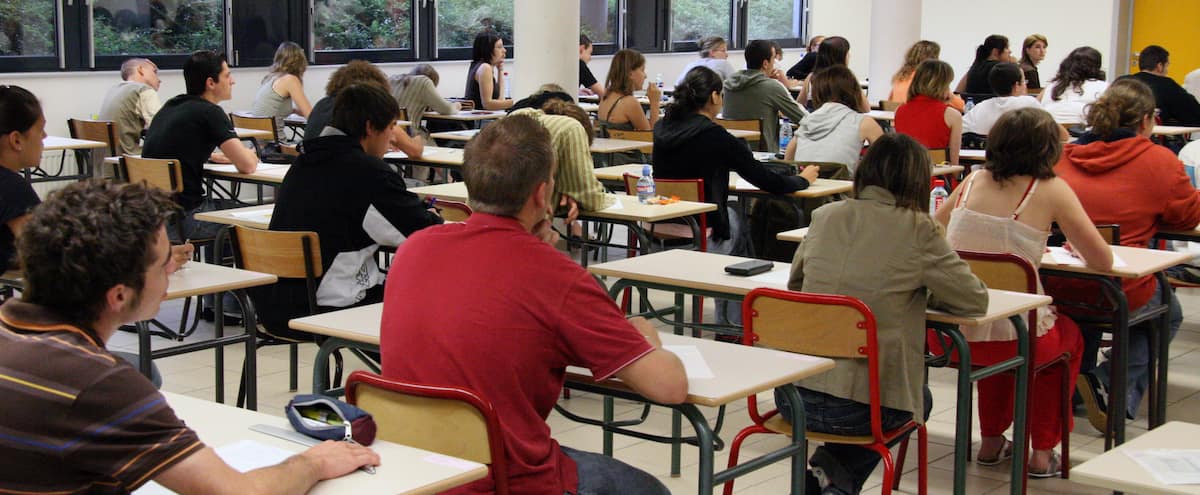It is difficult these days to discuss a topic as explosive as the Israel-Hamas conflict. This is even more true for teachers who have to address the topic in class in front of thirty or a hundred people. Experts give us some tips to avoid slip-ups.
• Also read: The Israel-Hamas conflict is causing tension in schools here
1) Do no harm
The first question you should ask yourself is: Is it my job to raise the issue? Is it the right time, the right context? suggests Sivane Hirsch, professor at the Faculty of Education at Laval University.
“If it’s just about appearing ‘cool,’ it’s not the best choice,” says the person who has helped create several guides on dealing with sensitive topics in the classroom.
For Dr. Cécile Rousseau, a psychiatrist specializing in polarization, says the first rule is “do no harm.” His team is currently seeing an increase in the need for support in schools.
“Right now, even acknowledging the suffering on both sides is easily seen as biased,” she notes.
Even if we are in favor of dialogue, sometimes it is necessary to take a break to avoid confrontation.
“It’s like in a family: if the conflict is too acute, we shouldn’t push for premature dialogue,” explains Dr. Rousseau.

Photo AFP
2) Be well prepared
It’s difficult to improvise a course on such a topic, notes David Morin, a professor at the University of Sherbrooke’s School of Applied Politics. To be ready, not only do you need to have done your research homework, but it is also best to “feel subjectively ready.”
Additionally, it is better to know your class, know who you are talking to, and suggest several experts.
Preparing also means questioning where we come from and what prejudices we have, adds Sivane Hirsch.

Sivane Hirsch, professor at the University of Laval. Photo from the University of Laval website
For example, the researcher herself is of Israeli origin. “Of course I have prejudices. And I have to think about it.” This is how we can avoid sinking into the belief that our point of view is synonymous with absolute truth.
3) Advocate moderation
Sami Aoun has been teaching applied politics and issues related to the Middle East for over 30 years. There is indeed a way to address these issues if we do so with a professional conscience and not an ideological conscience, he asserts.
He suggests advocating a balance between criticism and self-criticism. For example, he does not hesitate to read texts critical of the Palestinian position written by Palestinian sources, while doing the same on the Israeli side.
David Morin also suggests highlighting the presence of key figures practicing facilitation.
“The worst thing we can do is allow extremes on all sides to monopolize the conversation,” he adds.
4) Dialogue can be learned
Despite the explosive climate, we need to ensure that people still have spaces in which to express themselves, several experts emphasize.
The feeling of not being heard or that one’s voice does not count is one of the factors of radicalization that leads to violence, explains Louis Audet Gosselin, scientific director of the Center for the Prevention of Radicalization that Leads to Violence (CPRLV).
In addition, learning dialogue is part of the social role of school, recalls Sivane Hirsch.
“If we can’t talk about the conflict, we can’t talk about the tram [de Québec]», she illustrates.
As far as the university is concerned, it must fundamentally be a place where debates can take place. However, at Concordia University on November 8, tensions led to physical confrontations.
But according to David Morin, it is better to regulate discussion than to ban it. “Otherwise it moves the problem outside, into the police’s backyard.”

Photo AFP
5) A political conflict, not a religious one
In any case, we cannot tolerate people crossing the line into hate speech. This means calling a group that is identifiable because of its religion or ethnic origin an enemy, explains Louis Audet Gosselin.
Before “dehumanizing the enemy,” we must remember that the conflict is primarily political and not religious, several experts emphasize.
“We have to stop saying it is a conflict between Jews and Muslims. That’s not true,” says Rachad Antonius, professor in the Department of Sociology at UQAM. “It is a conflict between a state and its victims,” he summarizes.
“Not all Jews are Zionists and not all Muslims are Islamists or anti-Western,” Sami Aoun also states.


Can you share information about this story?
Write to us or call us directly at 1 800-63SCOOP.

